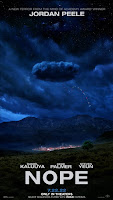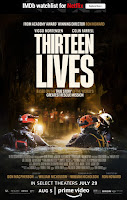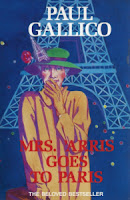In Our Blood
by Caitlin Billings
Memoir, Mental Health, LGBTQ | Published: 2022 | Goodreads
When Caitlin Billings became a therapist, she did so with an intention to heal from her past. She wasn’t planning on a mental health relapse or an involuntary psychiatric hold. She was a mother now. A mental health professional. She thought the issues she’d faced in her past were dealt with, tucked away forever.
She was wrong.
Over the years, Billings contends with bipolar disorder while raising two children and fighting to regain her footing as a clinician. She feels she’s finally gotten a handle on her mental health when, on the cusp of adolescence, her elder child begins to struggle with disordered eating and depressive symptoms. Convinced that she is to blame for her child’s struggles, Billings pivots her attention to this new crisis, determined to keep it together for her family—but after it comes out that sexual abuse has taken place in their home, she questions her ability to protect her children and experiences a relapse. Amidst all this turmoil, her elder child also comes out as transgender, forcing yet another kind of reckoning. Billings must find a way to accept the many changes and unexpected challenges that have reared up in their lives—and, ultimately, to accept herself.
EXCERPT: Prologue
The first time I cry is in front of a therapist who wears brown clogs. Her restless feet dance with
minute movements. A flash of striped sock. She holds a notepad.
The scrape of the pen slices something inside of me, a grinding kind of ache that keeps the tears dripping. She told me her name when she came into the room, but now her staff tag blurs with my grief.
When she speaks again, I become a statue, one leg crossed over the other. I wear sneakers, not professional shoes. My body tries to say, I can’t believe this is happening, but then she asks if there are other cuts. I shake my head no, and my husband pulls up my shirtsleeve. Shallow, tentative wounds from my shaving razor, all over my left arm. Those cuts sting more than the straight razor strokes to my wrist.
My breath shakes in my diaphragm, and I move my husband’s hand. I press my face into my palms, glasses and all, and sob. Perspiration tickles my back.
“Allen,” I say.
His hand grazes my shoulder, and I don’t brush him off. “I’m here.” When I move my hand to blot my eyes, brown clogs and striped, socked feet stand, pause, and then lumber away.
I loved to sing as a kid. Sometimes my best friend and I converged at the park between our houses. We rested on the rusted merry-go-round and spun with our feet in wood chips. She sang one long tone and I belted the next note, its sharp sister. We held those sounds as long as we could while we stood and whirled in slow motion, hanging from the bars, looking out over the park with its meadow and creek and stinging nettle. Our creation was the ugliest and most beautiful noise I had ever heard.
That noise is coming from me now, a howl that fills the room with dissonance.
“It’s going to be okay,” Allen whispers after a moment. He lifts my head, and I hand him my glasses. He places them like a tiny, vulnerable eggshell on the seat next to us.
Out of my mouth pour the jangled notes; they are huge and take up all my air.
What have I done?
“I’m sorry...”
Brown Clogs returns. “Nothing to be ashamed of,” she says. I rock in my seat.
She hands me a tissue.
Time passes. I don’t know how long. I tell the balloon in my chest to release rather than pop.
“Caitlin,” Allen says. He stands in the doorway with a tray of burgers and french fries.
Brown Clogs is gone. Outside the open door, a man in a dark uniform with SECURITY printed across his back and a walkie-talkie at his hip sits in a chair.
The windows have turned from bright to soft black. “What time is it?” I ask.
Allen pulls a low table toward our chairs. “It’s about six,” he says around a bite of fresh onion
and pickle.
“Where are the kids?” My hand cups the cuts as if to shield my children from the sight.
“My sister picked them up.”
“Your sister? Oh god, Allen—”
“It’s fine.” He hands me a fry. “Eat.”
I take the greasy wedge and stick it in my mouth.
This is grief, I think to myself. Because grief comes like the ocean rushes and sprays and tugs.
My familiar self, sculpted out of thirty-three years of life, taken away by a moment of insanity.
Tears fill my eyes and sting like shards of glass.
“I don’t want to go,” I whisper.
The security guard pokes his head around the doorframe.
I try to appear sane.
He steps back, and the awful scratch of pen on paper returns.
This wave, it’s massive. I’m sucked under, deep into the dark murk where shadow creatures live, where the blind and translucent dwell, so far down I’ll never come up.
I sink into Allen on the love seat.
Voices trail down the hall. A soft exchange with the security guard and then someone states my name.
Another uniform. A gurney.
I feel small and see myself in their eyes: tousled bun, swollen face. Allen’s sweatshirt. Dirty sneakers.
I hand the sweatshirt to my husband. In a simultaneous choreography, the medic wraps a warm blanket around my shoulders.
I am loaded, buckled, and secured. We roll down a hallway and out the door into a parking lot with a silent ambulance.
They lift me into the vehicle with a weightless swing, as if swaybacked elephants are carrying me.
“You ever been in an ambulance before?” asks one of my escorts.
“No.”
The wave crashes and yanks me down until I black out the moment. No, I’ve never been in an ambulance.
I’ve never been admitted to a psychiatric hospital before either.
About the author:
A Licensed Clinical Social Worker in the state of California, she specializes in deep trauma therapy, is pursuing EMDR Therapy certification, and owns her own private practice.
Throughout her career, Caitlin has worked with court-mandated groups for domestic violence offenders, partial hospitalization programs, substance use programs, residential rehabilitation services, family support services and as a birthing doula. She has also contended with abandonment from her biological father, an eating disorder, a deep-set need for perfection, post-traumatic stress and bipolar disorder. Despite involuntary hospitalizations and an initial
refusal to accept her bipolar diagnosis, Caitlin reclaimed her life and sanity, successfully establishing herself as a professional and a supportive mother to her gender-fluid elder child.
Caitlin is honored by her work, sitting with individuals as they process their trauma and step toward healing. Everyone has some cognition of “I don’t matter; I’m worthless” due to society’s expectations. She aims to prove that people can build a depth of understanding and acceptance if they embrace imperfection and self-love. By sharing her memoir, “warts and all,” she hopes to change the lives of others with her message, “You matter. You are no other. You are not alone.”
















































